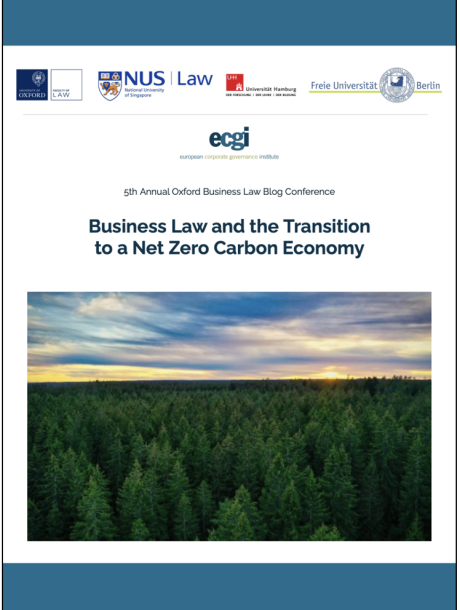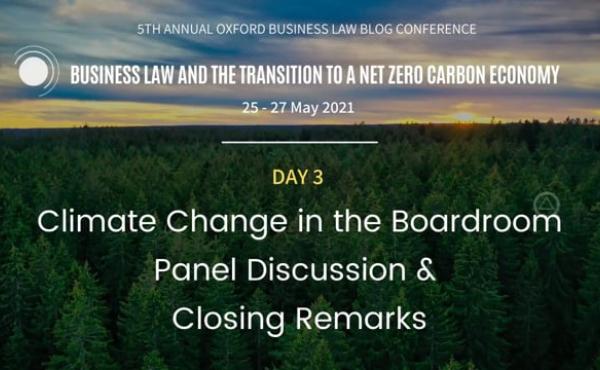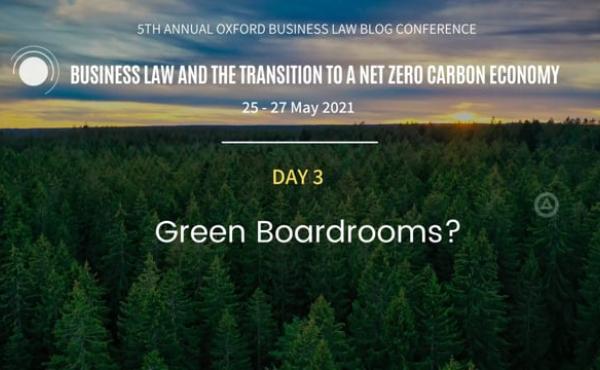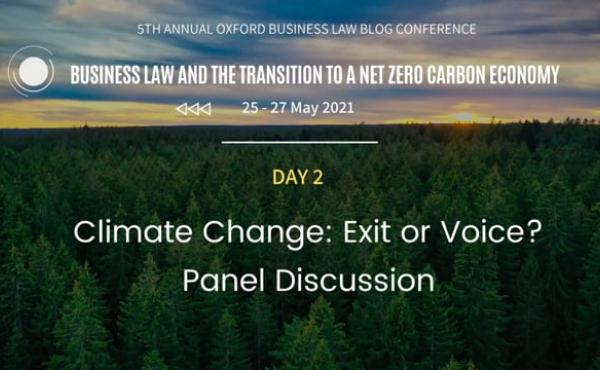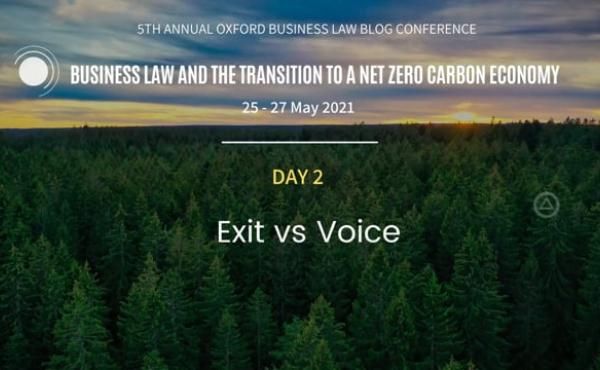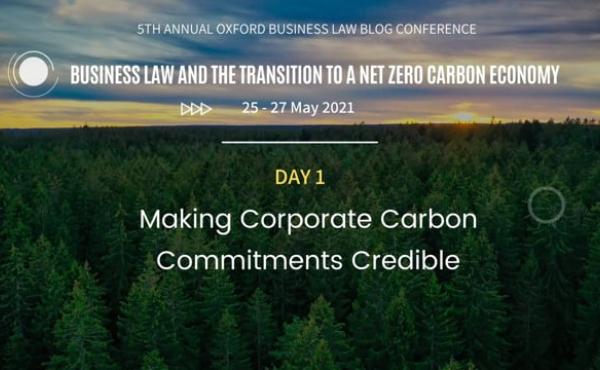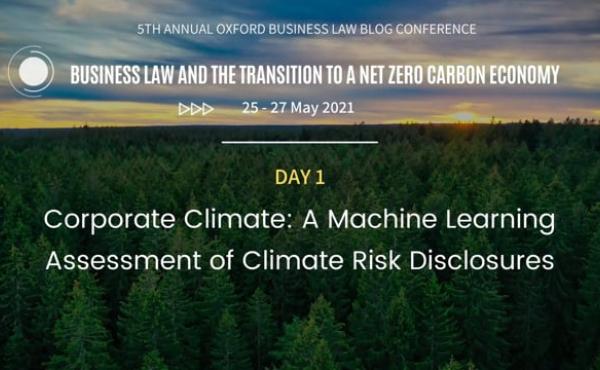
5th Annual Oxford Business Law Blog Conference
Business Law and the Transition to a Net Zero Carbon Economy
The videos of each session are available under the presentation tab on this page and also on the ECGI YouTube channel
Organised by
The Oxford Business Law Blog
In collaboration with
University of Oxford Faculty of Law and Sustainable Law Programme
Universität Hamburg Faculty of Law
Freie Universität Berlin Department of Law and Freie Universität Berlin Empirical Legal Studies Center
National University of Singapore Faculty of Law, EW Barker Centre for Law & Business and Asia-Pacific Centre for Environmental Law
The European Corporate Governance Institute (ECGI)
Co-organisers:
Horst Eidenmüller | Andreas Engert | Luca Enriques | Geneviève Helleringer
Georg Ringe | Kristin Van Zwieten | Umakanth Varottil | Thom Wetzer
Supported by
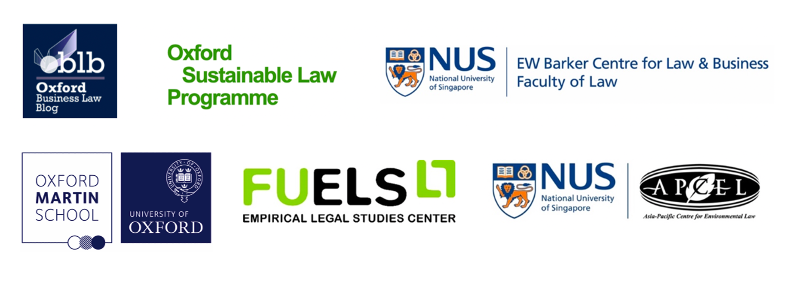
Programme
Day 1: Tuesday 25 May 2021 | 13:00 BST (14:00 CEST)
Climate Change Disclosures and Net Zero Commitments
Chaired by
Speaker(s)
Welcome address
Speaker(s)
Making Corporate Carbon Commitments Credible
Speaker(s)
Discussant
Meet & Greet | Online link will be provided
Day 2: Wednesday 26 May 2021 | 13:00 BST (14:00 CEST)
Climate Change: Exit or Voice?
Chaired by
Speaker(s)
Exit vs. Voice
Speaker(s)
Discussant
Meet & Greet | Online link will be provided
Day 3: Thursday 27 May 2021 | 13:00 BST (14:00 CEST)
Climate Change in the Boardroom
Chaired by
Speaker(s)
Green Boardrooms?
Speaker(s)
Discussant
Panel Discussion
Moderator
Speaker(s)
Panelist(s)
Concluding remarks
Speaker(s)
Meet & Greet | Link will be provided
Speakers
John Armour
Professor of Law and Finance
University of Oxford, Faculty of Law
Fellow,
Research Member
Luca Enriques
Professor of Business Law
Bocconi University, Department of Legal Studies
Fellow,
Research Member
Jill Fisch
Saul A. Fox Distinguished Professor of Business Law
University of Pennsylvania Law School
Fellow,
Research Member
Jeffrey Gordon
Richard Paul Richman Professor of Law and Co-Director, Millstein Center for Global Markets and Corporate Ownership
Columbia Law School
Fellow,
Research Member
Oliver Hart
Lewis P. and Linda L. Geyser University Professor
Department of Economics, Harvard University
Fellow,
Research Member
Laura Starks
George Kozmetsky Centennial University Distinguished Chair
McCombs School of Business, University of Texas at Austin
Fellow,
Research Member
Eric Talley
Stern Professor of Law and Business; Co-Director, Millstein Center for Global Markets and Corporate Ownership
Columbia Law School
Research Member
Presentations
Contact

Elaine McPartlan
European Corporate Governance Institute (ECGI)








































